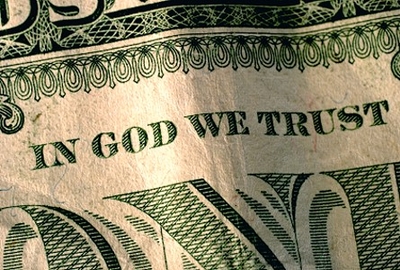HAVE YOU HEARD about the Virginia politician who said a reference to God should be injected into the Declaration of Independence? Or about the activist from Massachusetts who urged making the Fourth of July a quasi-religious holiday?

Don't get too worked up about these proposals: They were made 219 years ago. Today they would be angrily denounced by the Anti-Defamation League, the New York Times editorial page, and the Democratic Congressional Campaign Committee, which describe politically active Christians as -- to quote a few recent slanders -- "radical," "intolerant," "extremist," "conspiratorial," "theocratic," and "backward Bible-thumpers." But in 1776, at the hour American sovereignty was being forged, these ideas were anything but controversial.
The politician who wanted to stick God into the Declaration of Independence was its author, Thomas Jefferson. Indeed, the document adopted unanimously by the Continental Congress on July 4, 1776 refers to God not once but four times. Its opening sentence invokes "the Laws of Nature and of Nature's God." Its final paragraph begins by "appealing to the Supreme Judge of the World for the Rectitude of our Intentions." It closes "with a firm Reliance on the Protection of divine Providence." And in the most quoted passage in our history, the Declaration of Independence puts God at the very heart of the American Idea:
"We hold these Truths to be self-evident: that all Men are created equal, that they are endowed by their Creator with certain unalienable Rights, that among these are Life, Liberty, and the Pursuit of Happiness."
It was Jefferson's great colleague and rival, John Adams of Massachusetts, who thought the Fourth of July should be an occasion of joy and worship. "It will be celebrated by succeeding generations," he wrote to his wife Abigail from Philadelphia, "as the great anniversary festival. It ought to be commemorated as the day of deliverance, by solemn acts of devotion to God Almighty. It ought to be solemnized with pomp and parade, with shows, games, sports, guns, bells, bonfires, and illuminations."
In linking religion to American liberty, Adams and Jefferson were not simply bowing to the political correctness of their time, or verbalizing empty sentiment that no one was expected to take seriously. They were articulating a core principle of American nationhood: Religious faith -- and the civic virtues it gives rise to -- is as indispensable to a democratic republic as freedom of speech or the right to own property. Religion can survive in the absence of freedom. But freedom without religion is dangerous and unstable.
Over and over, the Founders said so. "Of all the dispositions and habits which lead to political prosperity," George Washington reminded the country in his farewell address, "religion and morality are indispensable supports."
Even Benjamin Franklin -- shrewd, inquisitive, worldly, witty, Ben Franklin -- argued that American independence had to be grounded in religious faith. "I have lived, sir, a long time," he said to the Philadelphia Convention of 1787, addressing the chair. "And the longer I live, the more convincing proofs I see of this truth: that God governs in the affairs of men. . . . We have been assured, sir, in the sacred writing, that except the Lord build the house, they labor in vain that builds it. I firmly believe this. And I also believe that without His concurring aid, we shall succeed in this political building no better than the builders of Babel."
Liberty with faith, a secular state nourished by a religious society -- that was the formula the Founders devised. They sought to combine the Enlightenment's emphasis on reason, learning and pluralism with the Judeo-Christian ethic of responsibility, justice and morality. What resulted was a nation that is, on the whole, more diverse, more free, more tolerant, more successful, and more religious than any before or since.
It would not have surprised Jefferson and Adams to learn that 220 years after the Declaration of Independence was signed, 95 percent of all Americans profess a belief in God and 80 percent say prayer is important in their lives. The Pledge of Allegiance to "one nation under God" or the American motto -- "In God we trust" -- would have struck them as wholly consistent with the political vision they risked everything to bring about.
What would have astonished them is the hostility to religion that pervades modern liberalism and the domains where it holds sway -- the media, the public schools, the arts, and the elite colleges. That the Ten Commandments may not be posted in a public classroom, that political activists who promote prayer are reviled as zealots, that religious leaders may not deliver invocations at high school commencements -- that would have shocked the Founders. And alarmed them.
On Independence Day, it is worth reminding ourselves of a truth the men and women of 1776 held to be self-evident: American liberty and democracy do more than tolerate religion. They depend upon it.
(Jeff Jacoby is a columnist for the Boston Globe. A version of this column appeared in 1995.)
-- ## --
Follow Jeff Jacoby on Twitter.
"Like" Jeff Jacoby's columns on Facebook.
Want to read more Jeff Jacoby? Sign up for "Arguable," his free weekly email newsletter.

